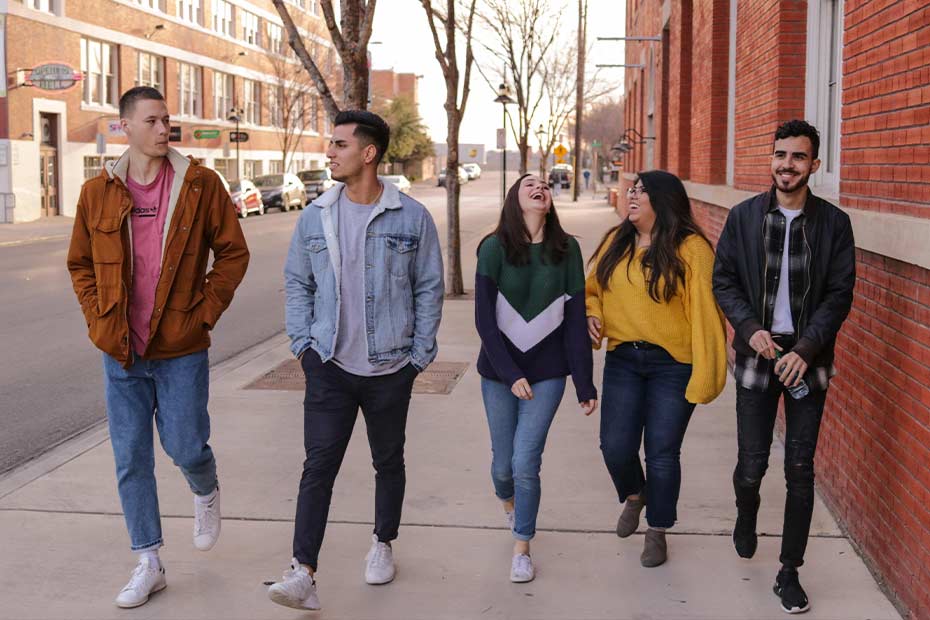According to the 2021 RBC Future Launch Youth Outlook study, young Canadians, overall, are still feeling down in spite of pandemic progress. In particular, young women are struggling to juggle the effects of the pandemic and the world of work, and LGBTQ2S+ youth and young Canadians with disabilities are in dire need of mental wellness resources.
It’s a situation that’s no secret, says Kris Depencier, Regional President, Greater Toronto at RBC, which has been working with mental health organizations across Canada.
“We know youth have been disproportionally affected over the past two years,” says Depencier. “Their ability to feel in control and build their own future has been heavily disrupted – with school closures, high unemployment, and a general lack of opportunity. It’s no surprise to see an increased demand for mental health services and their ability to bounce back tested.”
Many Ontarians may already know of the Centre for Addiction and Mental Health (CAMH), which has a long track record of providing mental health support. But what they may not be as aware of Youth Wellness Hubs Ontario (YWHO), an innovative CAMH project that aims to bring the right services to youth (and their families), at the right time and at the right place, through low-barrier access to services and skill-building tools that can help them build resilience and overcome the issues they are facing.
RBC had the chance to hear from Dr. Joanna Henderson, project lead for YWHO, and get her perspective on the challenges facing youth today, the importance of developing resilience as a means of overcoming challenges and the way in which virtual services can offer support.
Why is it important to help youth find the appropriate mental health supports?
“Everyone needs skills and supportive people in their lives to help them anticipate and overcome the issues they may encounter,” says Dr. Henderson, adding that people who are resilient can effectively cope with, or adapt to, challenging situations.
“Dealing with challenges can make us grow and can make us stronger,” says Dr. Henderson. In other words, rather than merely bouncing back, the resilience people develop through the difficulties they face today can better prepare them to face future challenges.
“Promoting mental health encourages the development of resilience,” explains Dr. Henderson. “The reverse is also true: Promoting resilience leads to better mental health.”
How is engaging digitally helping youth navigate through the pandemic?
Digital solutions can create bridges, fill gaps and improve health equity. For instance, they can help underserved groups, such as Black, Indigenous, People of Colour and LGBTQ+, and improve access for people who live in remote or rural communities. They can also make information accessible and make it easier to connect with early intervention support. And during the pandemic, they are an essential outlet for support.
The YWHO Virtual Hubs provide an opportunity to create new approaches to mental health service delivery that take advantage of the strengths of technology. Dr. Henderson and her team saw a drastic increase in the number of youth accessing virtual services “Our hope is that people will be able to access the support they need wherever they are, and whenever they need it, because technology shouldn’t be a barrier for somebody who wants help,” says Dr. Henderson.
In the development of virtual services, she encourages authentic partnership with a diverse range of people to help ensure new solutions meet the needs of all populations — including those who previously had little access to treatment options.
How can organizations, corporations, and technology leaders play a role in youth mental wellness?
“We all have a role to play,” says Dr. Henderson. Some organizations, such as CAMH, have been leaders in the mental health space for decades, particularly through their commitment to evidence-based and purpose-driven services for people. When it comes to ensuring equitable digital access, system leaders have been stepping up to collaborate to create a system of care with a clear front door. Organizations play a huge part in advancing programming and funding to support youth wellness — even beyond the pandemic.
“Youth need our collective help as they prepare for their future, it’s an all-hands-on-deck effort,” says Depencier, “I’m immensely proud that RBC has been working with organizations like CAMH which has made great strides in guiding families and youth to quality services. YWHO’s evolution to digital is an important next step in ensuring even more youth get the support they need when they need it.”
Dr. Henderson says that there are many different paths through the pandemic, with some young people experiencing significantly more challenges than others. “There are many factors that contribute to mental health and we need to keep this in mind as we help young people cope: There is no ‘one story’ for young people.” Support environments she says — whether online or offline — need to be responsive, inclusive and adaptable.
“Overcoming adversity and building resilience doesn’t happen overnight, but this journey gets much easier when we find good support systems. We want to see Canada’s young people flourish and become the best version of themselves,” says Depencier. “After all, we know that when youth thrive, so does the rest of our country, today and in the future.”
As part of RBC Future Launch, RBC is committed to enhancing youth mental well-being, offering access to a wide variety of digital resources that can help cope through challenges, build skills in resilience and even help other youth who may be struggling. Please take some time and explore the link above.
More from the Breakdown Down Barriers: Youth Mental Well Being in Canada:
This article is intended as general information only and is not to be relied upon as constituting legal, financial or other professional advice. A professional advisor should be consulted regarding your specific situation. Information presented is believed to be factual and up-to-date but we do not guarantee its accuracy and it should not be regarded as a complete analysis of the subjects discussed. All expressions of opinion reflect the judgment of the authors as of the date of publication and are subject to change. No endorsement of any third parties or their advice, opinions, information, products or services is expressly given or implied by Royal Bank of Canada or any of its affiliates.


































